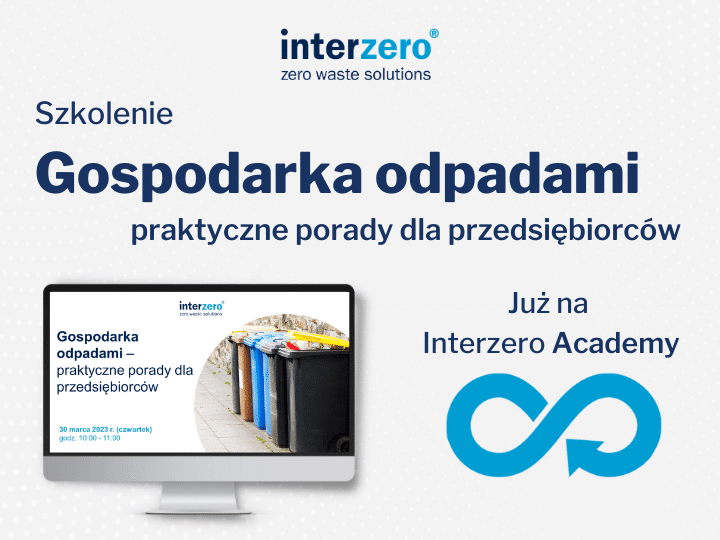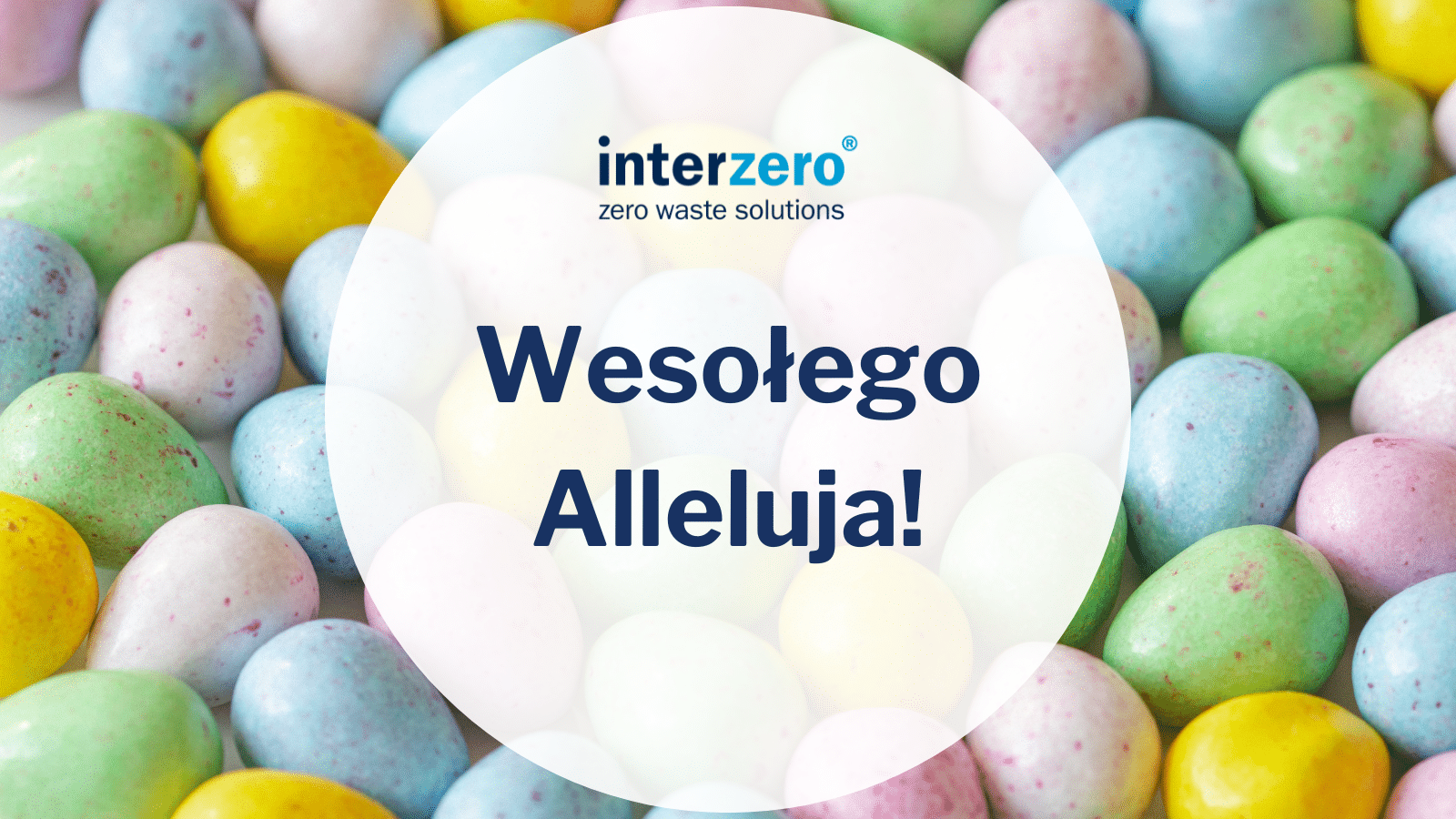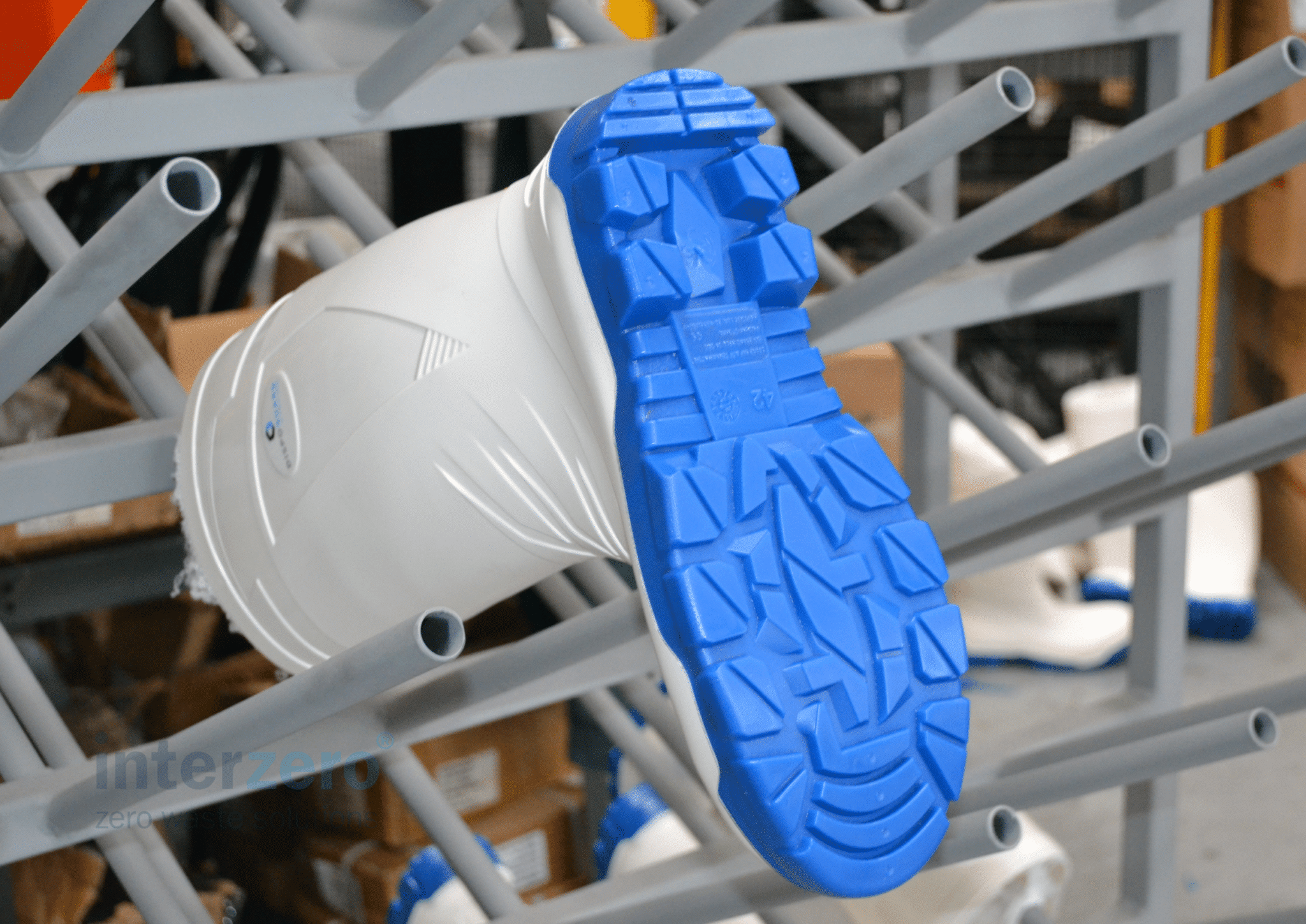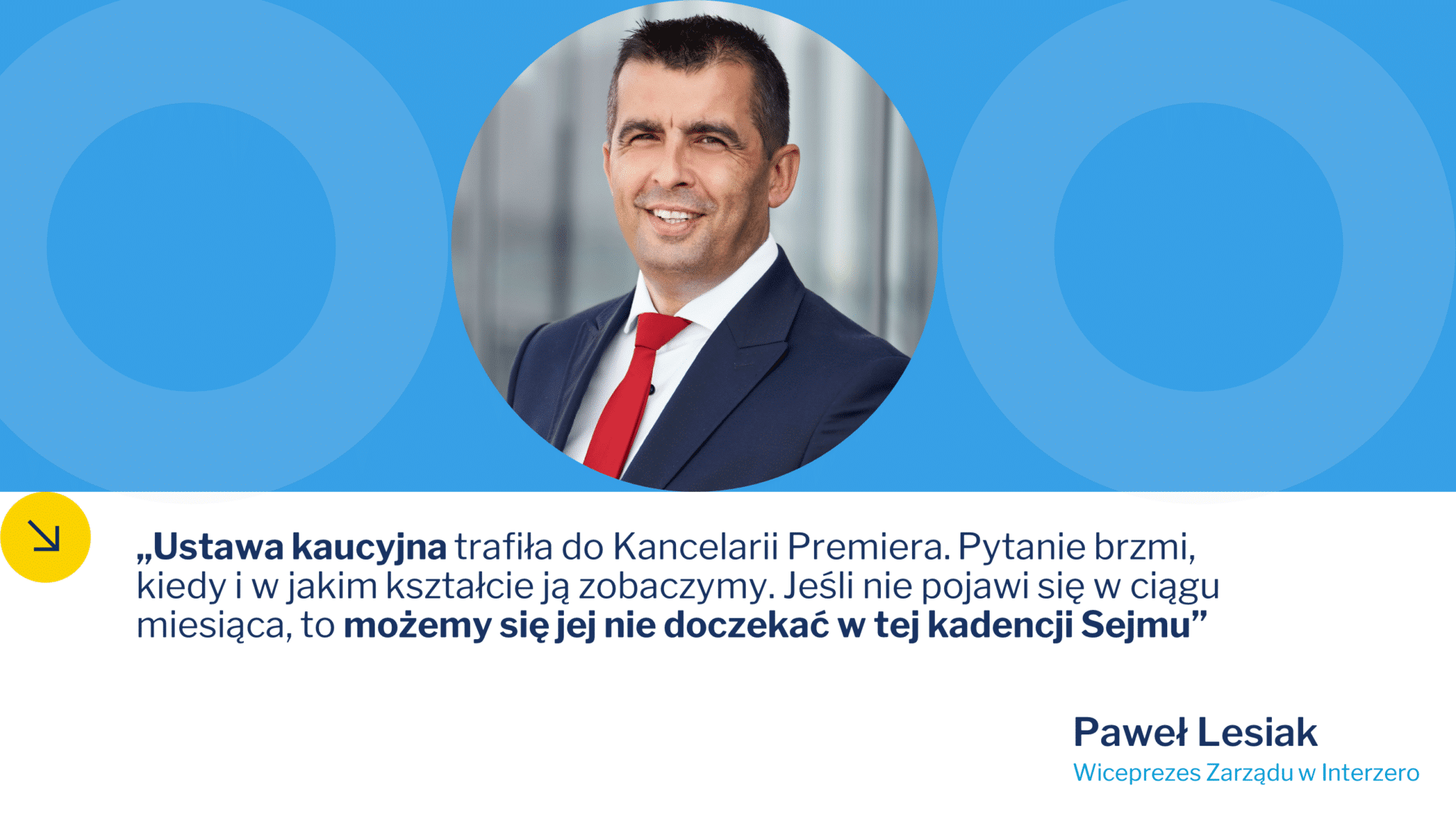Do you already know everything about the product fee and extended producer responsibility?
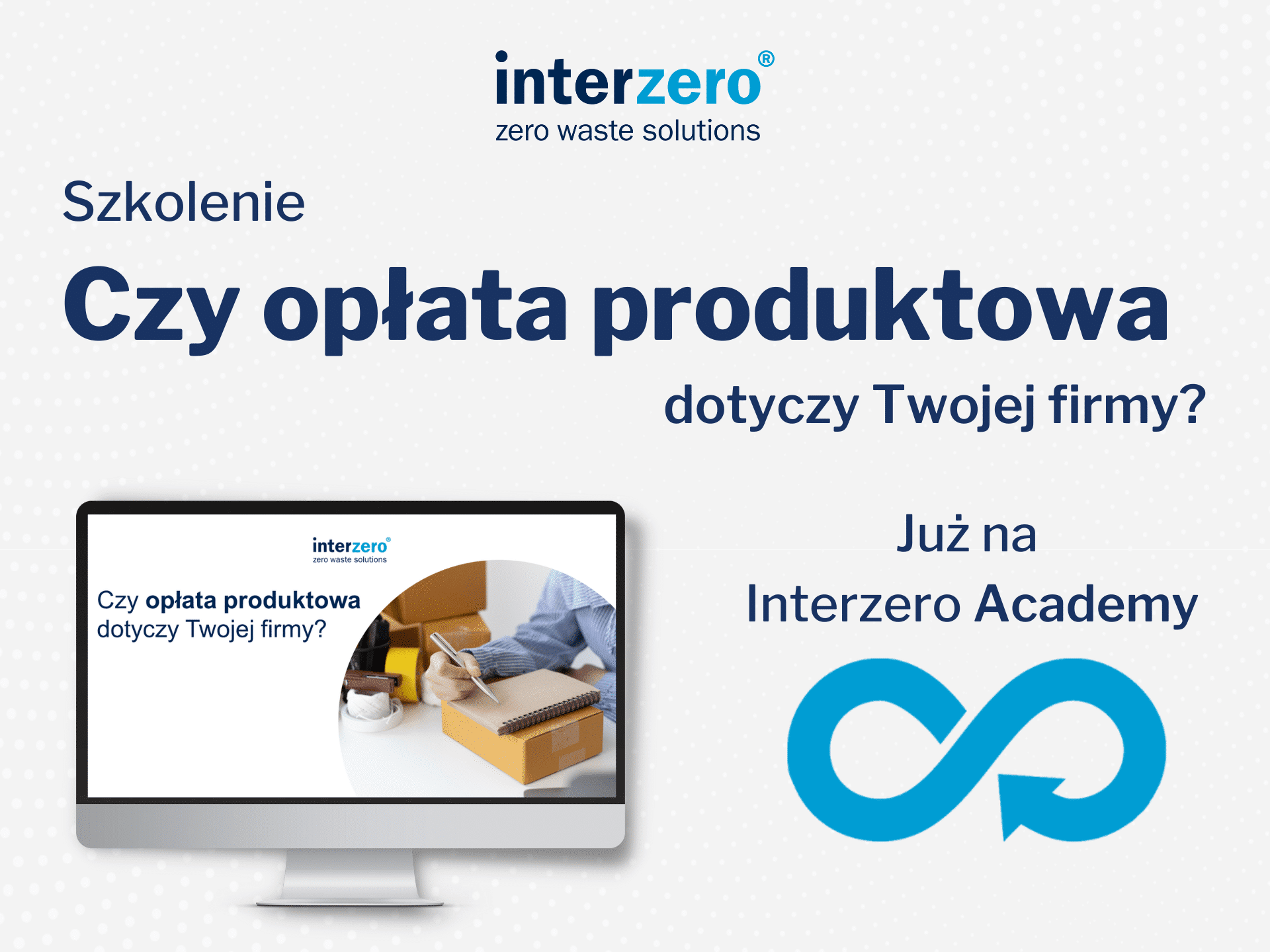
Do you already know everything about the product fee and extended producer responsibility?
The product fee is a type of ecological fee that must be paid by entrepreneurs who place products, packaging, oils, tires, electrical and electronic equipment, batteries and accumulators on the market. The purpose of this fee is to ensure proper handling of packaging waste in accordance with the Waste Act and to encourage entrepreneurs to reduce the amount of packaging produced.
If you want to learn more about this obligation, we encourage you to watch the training “Does the product fee apply to your company?” at Interzero Academy!
During the training you will learn:
- What is the product fee,
- What is Extended Producer Responsibility,
- You will learn the requirements for entrepreneurs related to ROP.
Watch the training HERE
Integration trip of the Interzero team on May 11-12, 2023.
Integration trip of the Interzero team on May 11-12, 2023.
Ladies and Gentlemen,
On 11-12 May this year. we integrate in our team on a company trip.
Therefore, we kindly inform you that on these days our branches will be closed and contact with our employees will be difficult.
We return to work on Monday, May 15.
We sincerely apologize for any inconvenience.
Team Interzero
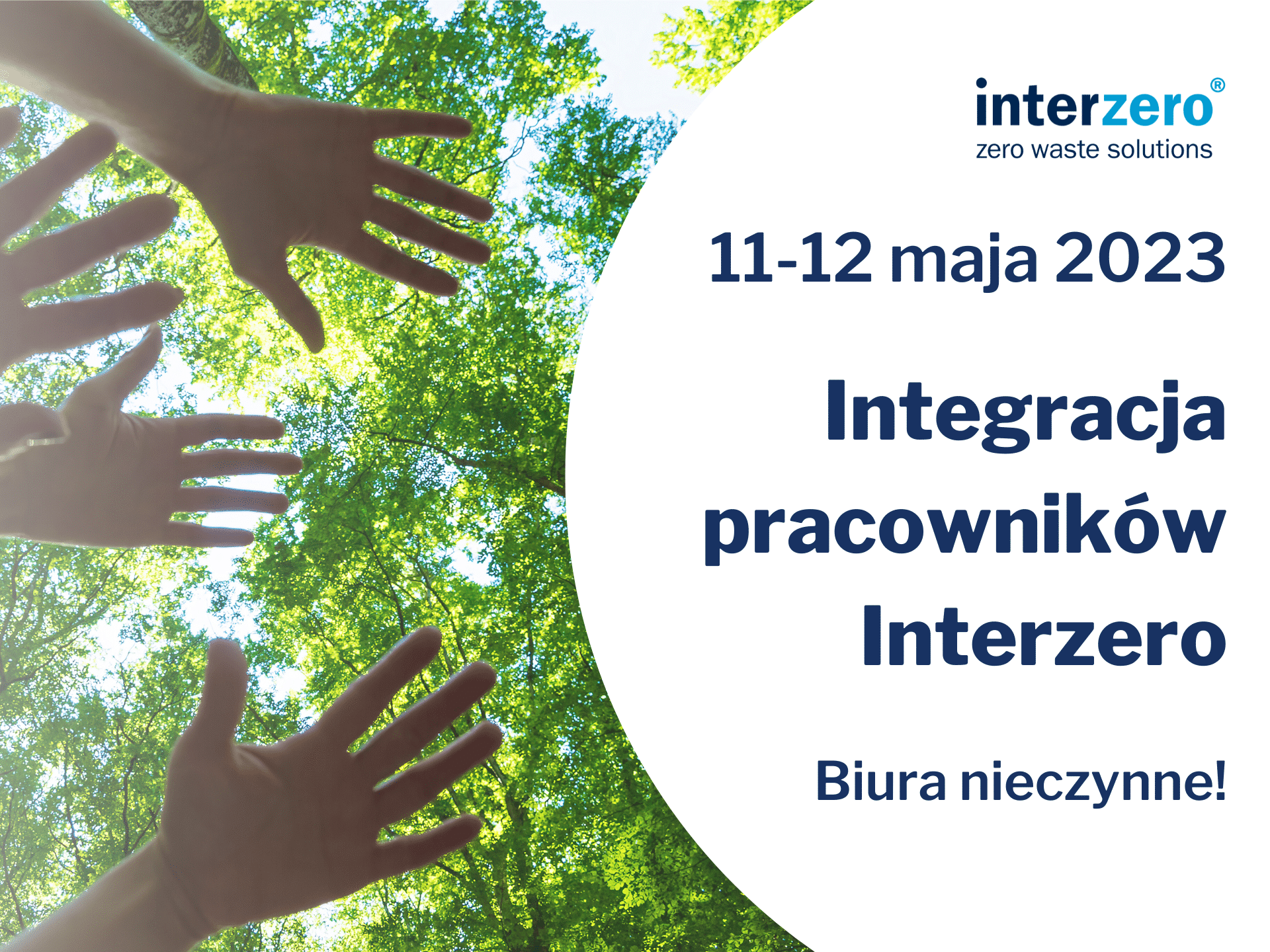
Take part in the training - Transport of medical waste in accordance with the provisions of the ADR Agreement
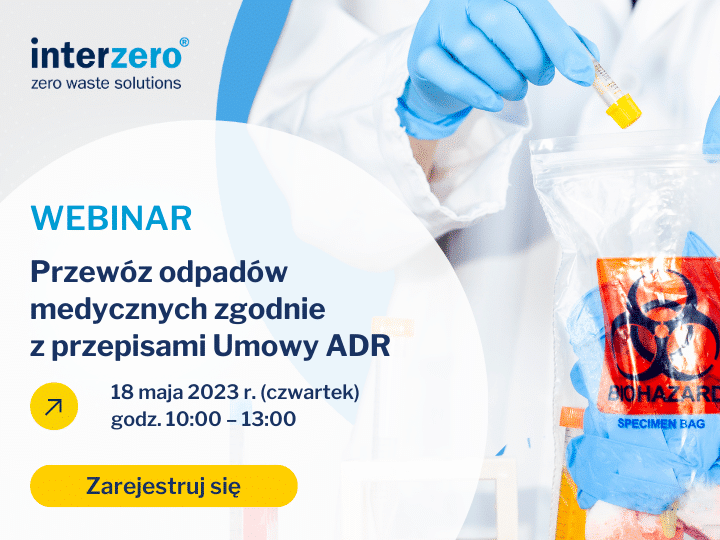
Take part in the training – Transport of medical waste in accordance with the provisions of the ADR Agreement
We cordially invite you to the webinar entitled “Transport of medical waste in accordance with the provisions of the ADR Agreement”, which will take place on May 18, 2023 (Thursday).
The online training will be conducted by: Magdalena Gepert , Specialist in transport of dangerous goods.
The scope of the webinar:
- classification of medical waste,
- medical waste as dangerous goods,
- preparation of medical waste for transport,
- legal requirements for medical waste packaging,
- appointing a consultant the safety of the transport of dangerous goods.
A detailed thematic scope and the registration page can be found at the link HERE
Registration for the webinar lasts until: May 18, 2023, 8:00 am.
We invite you!
Are we getting into trouble? – a new report on waste segregation from Interzero
Only 51% of the respondents of the survey conducted by Opinia24 for Interzero declare that they segregate waste into all 5 fractions, 43% believe that they do it correctly, and most incorrectly interpret the meaning of the markings on the packaging. The report "Are we getting into trouble? – what Poles know about packaging and how they deal with waste segregation” is now available.
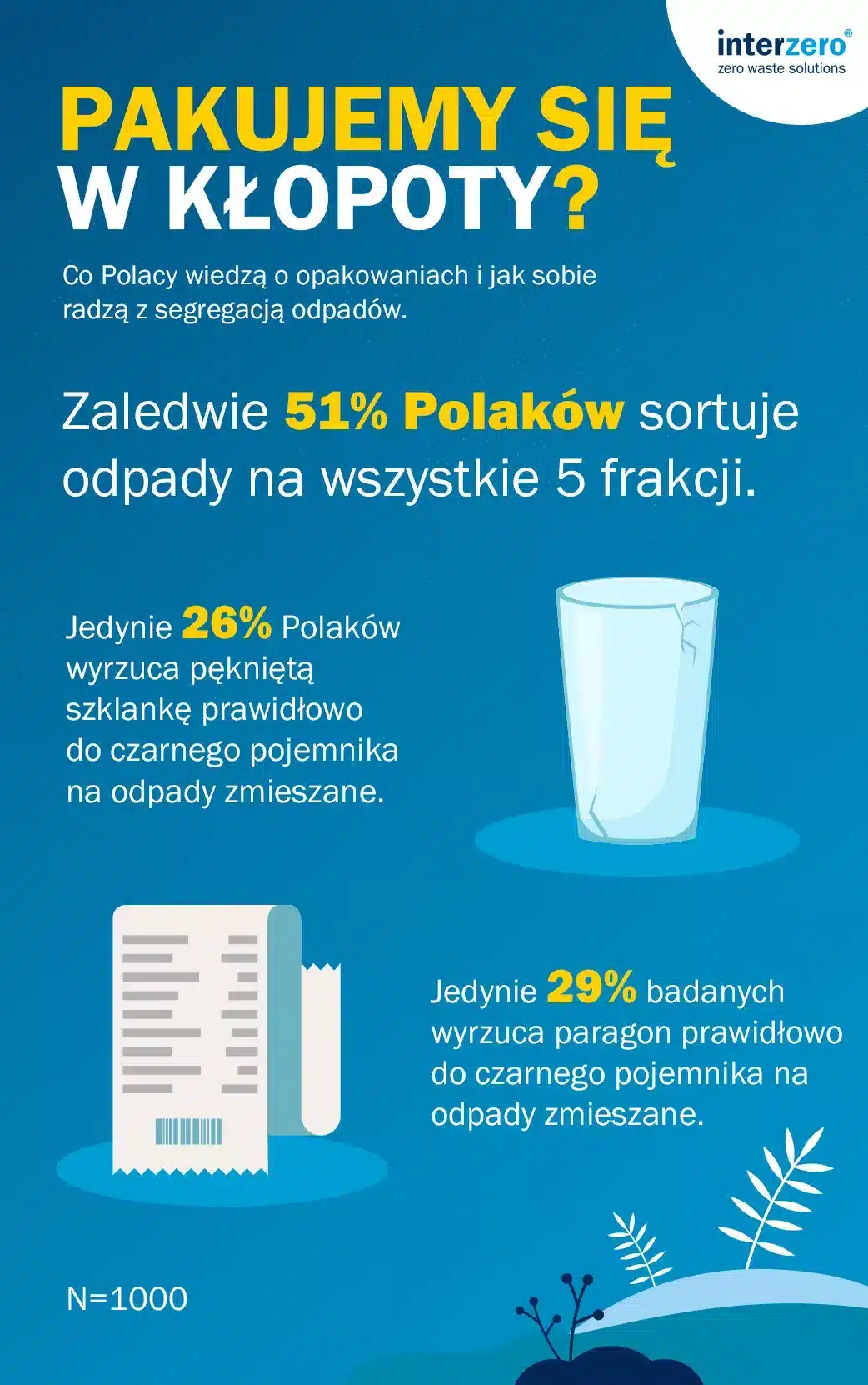
Selective collection of municipal waste in a minimum (i.e. 5-container) system is the responsibility of each of us and results from the provisions of the Act. What does it look like in households? Nearly 90% of respondents divide waste into glass, metals and plastics, slightly less into paper (84%), and only 62% bio-waste. 26% admit that they have trouble choosing the right container. Most of the respondents know how to handle a glass bottle or yogurt container. While simple, mono-material packaging does not raise any doubts, the situation is different with a broken glass (74% of incorrect answers), a beverage carton (49% of incorrect answers), a used paper towel or a receipt (53% and 71% of incorrect answers, respectively).
The source of knowledge on how to deal with used packaging should be, among others, its label, but although 90% of respondents read it, only 15% look for tips on how to throw it away. When shopping, Poles often check the composition, parameters and properties of products, but they pay much less attention to other symbols on the packaging. Most often, the respondents are interested in the expiration date (85%) and the composition of the product (76%). Aspects related to ecology, such as the country of origin, certificates, instructions for handling packaging or its recyclability, are of interest to a definite minority.
Nearly 40% of respondents believe that product packaging contains too much information, which makes it difficult for them to find what they are looking for. Polish consumers also have a problem with correctly identifying packaging symbols. The recycling stamp, which is included in the Polish regulation on packaging marking, is recognized by only 11% of respondents. Even fewer people (8% of the respondents) encountered the labeling of reusable products and compostable packaging. Only two symbols are widely known among consumers – the international recycling mark – the Möbius Strip and “keep clean” – the so-called. TidyMan.
The report “Are we getting into trouble? – what Poles know about packaging and how they deal with waste segregation” is available at this link .
Do you know what environmental obligations apply to you?
Do you know what environmental obligations apply to you?
Running any business activity is always associated with obligations on the part of the entrepreneur. In fact, they concern various areas of life, including environmental protection.
If you want to organize your knowledge on this subject, take part in the training entitled “Environmental protection: what are the obligations of entrepreneurs” at Interzero Academy!
During the course you will learn what the duties are:
- in terms of the need to hold administrative decisions,
- in the field of measurements,
- reporting,
- entry in the registers.
We invite you to watch the training at Interzero Academy today! Link HERE
Millions of fines for waste? Is it possible?
Millions of fines for waste? Is it possible?
Unfortunately yes. This is a way to tighten sanctions for not keeping records of waste or commissioning its transport to persons operating in the so-called shadow economy.
On April 7, Przemysław Kuna , Managing Director at Interzero, took part in the episode of the Przygody Przedsiębiorczości podcast on waste management in the company.
Topics covered during the interview:
– What is ROP (Extended Producer Responsibility),
– What is BDO (Waste Database),
– What is the level of awareness among Polish entrepreneurs,
– What are the consequences of non-compliance with ROP rules,
– What do official controls look like and how to protect yourself against penalties,
– What is waste management and what is it for,
And what can be expected in the future in terms of waste and environmental protection.
We encourage you to watch the whole interview on the Adventures of Entrepreneurs channel HERE
Entrepreneur! Do you already know everything about waste management?
Entrepreneur! Do you already know everything about waste management?
Waste management is one of the obligations of entrepreneurs, which cannot be avoided. When performing these activities, errors due to ignorance often occur. Frequently changing legal regulations do not make it any easier.
If you need advice on how to perform your waste management obligation correctly, watch our training on “Waste management – practical advice for entrepreneurs” at Interzero Academy!
Course scope:
- Introduction to waste management
- Administrative decisions
- Registration obligations
- Waste records
- Reporting
We invite you to watch today! Link HERE
Easter
Easter
On the occasion of the upcoming Easter, we would like to extend our best wishes full of joy, health and prosperity.
We believe that this upcoming time will be an opportunity for you to rest, reflect and spend time with your loved ones and friends. Let the Easter traditions and customs that accompany us remind you of the values that are most important in life – love, family warmth and kindness!
Team Interzero
Innovative raw material management developed by Interzero
Innovative raw material management developed by Interzero
Sustainable development and closing the loop can be an opportunity for companies. ESG regulations are worth looking at not only in terms of potential costs for the company, but also measurable benefits, including profits and savings of natural resources.
Knowing this, we started cooperation with Fagum-Stomil and thanks to our joint commitment, we managed to develop a way to use the leftovers of the PVB film used in the production of car windows for the production of rubber boots. Due to its composition, the film is very difficult to process, as it sticks together. After long tests, conducted since 2021 by Interzero and Łukpol , it was possible to develop a method for processing PVB scrap and its reuse for the production of shoe granules. In this way, the material previously perceived as a difficult raw material is recycled and reused.
The developed method gives measurable benefits for the environment – it reduces the amount of natural resources needed for production, reduces pollution and exploitation of the environment, and leads to mitigation of the climate crisis.
As an industry leader, we pursue the mission of supporting the circular economy by searching for innovative, integrated environmental solutions focused on the future. We hope that our many years of experience and acquired know-how will allow us to implement even more projects focused on environmental benefits in the near future.
We encourage you to view the photos of the product.
We need to start working on bail
We need to start working on bail
What will be the effects of delays in legislative work on the deposit-refund system? What about the excessive burning of packaging and what will the future of chemical recycling look like? These topics were raised in the latest debate “Packaging in the circular economy: from ideals to practice” for Rzeczpospolita .
The meeting was attended by Renata Juszkiewicz, Anna Larsson, Robert Chciuk, Konrad Nowakowski, Jacek Wodzisławski, Andrzej Gantner, Łukasz Sosnowski and on behalf of Interzero Paweł Lesiak , Vice-President of the Management Board. The debate was moderated by Aleksandra Ptak-Iglewska.
As part of the meeting, the future of the European packaging market, the effectiveness of recycling in Poland and the topic of reusable packaging were discussed.
The participants, discussing the deposit-refund system, pointed out that, taking into account the PPWR criteria, including dairy product packaging is not entirely a good idea.
“I agree with the proposal not to include dairy product packaging in the system. However, this would be tantamount to failure to meet the collection obligation resulting from the ordinance. There is no good solution here. The EU regulations directly result in the obligation to include dairy product packaging in the system. A compromise solution would be to postpone the entry into force of the deposit obligation for this assortment. This would allow us to gather the first experience of the system’s operation in other ranges of materials and prepare for it better.” – said Pawel Lesiak.
The obligation to introduce the system to smaller stores also became the subject of disputes. Experts have noticed that small retail chains want to join the system, seeing financial benefits and the possibility of attracting customers.
“As Interzero, we run such a system in small stores in Germany. In our western neighbor, these smaller entities, despite the statutory exemption, willingly join it. It is business justified, because if the customer cannot return the bottles in a given store, they simply he will start shopping elsewhere. In Poland, we should think in a similar way, regardless of the discussion about regulations. I am in talks with retail chains, including small shops, and I hear that they are very interested in the system and want to join it, “said Paweł Lesiak.
Link to the entire debate HERE






